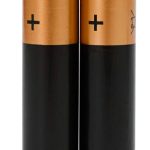Soundproofing a van may seem like a daunting challenge at first. However, with the right materials and a bit of know-how, you can transform your vehicle into a silent haven, perfect for those long drives or for converting your van into a mobile home or a workspace. In this article, we will explore various effective insulation materials that are ideal for soundproofing vans in the UK. We will examine their pros and cons and shed light on how you can use them to reduce noise levels effectively in your vehicle.
Mass Loaded Vinyl (MLV) for Soundproofing
When it comes to soundproofing a van, Mass Loaded Vinyl or MLV is a common go-to material. MLV is a thin yet heavy sheet made of vinyl material that is commonly used for soundproofing. It works by adding mass to your van’s panels, which in turn reduces the amount of noise that can pass through them.
Also to discover : How can you effectively reduce engine vibrations in an older model British sedan?
MLV is a highly effective soundproofing material because it is dense and flexible. Its flexibility allows it to conform to the van’s interior contours with ease. This feature is especially beneficial when dealing with irregular surfaces or complex shapes within the vehicle.
However, it is worth noting that MLV can be quite heavy and this additional weight might affect your vehicle’s fuel economy. It can also be a bit more challenging to install than other materials, as it often requires adhesives and hardware for secure placement.
Also read : How can you optimize the air-to-fuel ratio in a British classic car for better efficiency?
Closed-Cell Foam Insulation
Another insulation material that provides excellent soundproofing is closed-cell foam. This type of insulation is made from a solid foam structure that is both waterproof and airtight. This means that it not only blocks out sound but also provides good thermal insulation, making it a dual-purpose solution for your van.
One of the primary benefits of closed-cell foam insulation is its resilience. Unlike other types of insulation, it does not compress over time, maintaining its shape and insulation properties. This extended lifespan makes closed-cell foam a cost-effective long-term solution for van soundproofing.
There are, however, a couple of potential drawbacks to consider. Closed-cell foam is more expensive than other options, and it can be a bit trickier to install since it doesn’t conform to irregular shapes as easily as MLV.
Soundproofing Spray Foam
Soundproofing spray foam is a popular choice among van owners due to its ease of application. It is a type of foam that is sprayed in place, expanding to fill gaps and seal cracks. This effectively blocks out sound waves and prevents them from entering the van’s interior.
The main advantage of using spray foam is its convenience. The foam can be applied quickly and with little effort, providing immediate soundproofing benefits. It is also quite effective at filling in small gaps and crevices that other materials might miss.
However, you should be aware that once the spray foam has been applied, it is very difficult to remove. Therefore, if you ever need to access the area behind the foam for repairs or modifications, it could prove challenging.
Acoustic Foam Panels
Acoustic foam panels are designed specifically for sound absorption. These panels work by softening sound waves and preventing them from bouncing around inside the van.
One of the main benefits of acoustic foam panels is their ability to reduce echo within the van. This makes them ideal for people who plan on using their van as a mobile recording studio or for anyone who simply wants to enjoy a quieter ride.
However, it’s important to remember that acoustic foam panels are not specifically designed to block out external noise. They are best used in conjunction with other soundproofing materials for optimal results.
Dynamat Sound Deadening Material
Dynamat is a brand that specializes in sound deadening materials for vehicles. Their products are designed to absorb noise and vibrations, providing excellent soundproofing for your van.
Dynamat is very popular among car audio enthusiasts for its ability to suppress unwanted noise and vibrations. This results in a clearer, more powerful sound from the vehicle’s audio system.
While Dynamat is an exceptional product, it does come with a higher price tag. However, for those who prioritize sound quality, the investment is well worth it.
In summary, when it comes to soundproofing your van, there are various materials available that cater to different needs and budgets. From Mass Loaded Vinyl (MLV) and closed-cell foam insulation to soundproofing spray foam, acoustic foam panels, and Dynamat sound deadening material, you can choose the one that best suits your requirements. Remember to consider factors like effectiveness, cost, installation difficulty, and long-term durability when making your choice.
Polyurethane Foam for Soundproofing
Polyurethane foam is another viable option when considering soundproofing materials for your van. This foam is renowned for its excellent insulation properties, making it a popular choice for many van owners. Polyurethane foam is versatile and can be used in a variety of applications, providing both thermal insulation and soundproofing.
One of the key benefits of polyurethane foam is its robustness. It is resistant to moisture, mould and pests, making it an excellent choice for use in a vehicle that may be exposed to a variety of weather conditions. This material is also fire resistant, adding an extra level of safety to your van.
However, there are a few things to consider. Polyurethane foam is more expensive than other foam-based soundproofing materials. It can also be more challenging to install due to its rigidity compared to more flexible options.
Despite these considerations, polyurethane foam’s durability and excellent insulation properties make it a worthwhile investment for those looking to soundproof their van over the long term.
Fiberglass Insulation for Soundproofing
Fiberglass insulation is another material that you can consider when soundproofing your van. This material is made from extremely fine fibers of glass and is commonly used in residential and commercial buildings for both thermal and acoustic insulation.
The primary advantage of fiberglass insulation is its affordability. It is one of the most cost-effective options for soundproofing your van. The material is lightweight and easy to install, making it a practical choice for DIY enthusiasts.
However, fiberglass insulation does come with a few downsides. Firstly, it can be irritating to the skin and respiratory system, so it’s important to wear protective clothing and a mask when installing it. Secondly, it is not as durable as other types of insulation and can compress over time, reducing its effectiveness.
Despite this, fiberglass insulation remains a popular choice due to its affordability and ease of installation. It can be an effective solution for those on a budget seeking to reduce noise in their van.
Conclusion
Ultimately, the choice of insulation material for soundproofing your van will depend on various factors, including your budget, your DIY skills, and your specific soundproofing needs. While Mass Loaded Vinyl (MLV), closed-cell foam, soundproofing spray foam, acoustic foam panels, Dynamat sound deadening material, polyurethane foam, and fiberglass insulation all have their unique advantages and disadvantages, they all serve the common purpose of reducing noise levels in your van effectively.
By understanding the properties and benefits of each material, you can make an informed decision on which insulation would work best for your van. Whether you’re looking to create a quiet workspace, a mobile home, or simply enjoy a peaceful drive, the right soundproofing can help you achieve your desired level of tranquility. Remember, while the initial cost may seem steep, the benefits of a well-insulated and soundproofed van will certainly make the investment worth it in the long run.











